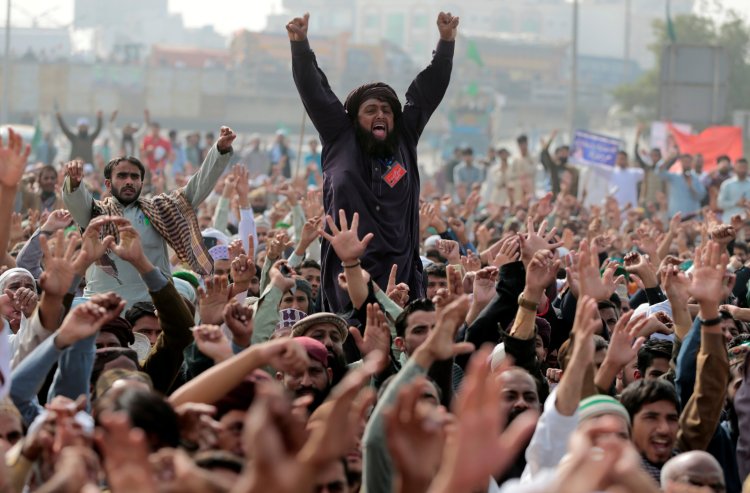The Plight of Religious Minorities in Pakistan: An Examination of Sunni Islamist Extremism
This article explores the rise of Sunni Islamist extremism in Pakistan, its impact on religious minority communities, and the implications of Pakistan's laws and educational system. It also discusses potential interventions by UN human rights bodies.

The rise of Sunni Islamist extremism in Pakistan has not only affected the security and stability of the nation but has also created a hostile environment for religious minority communities. The surge of extremist ideologies has sparked widespread violence and discrimination against religious groups such as Shia, Ahmadiyya, Christian, Hindu, and Sikh communities.
The Plight of Religious Minorities in Pakistan: An Examination of Sunni Islamist Extremism
The Surge of Sunni Islamist Extremism and Its Impact on Religious Minorities in Pakistan
In recent years, Pakistan has witnessed a disturbing rise in Sunni Islamist extremism, which has had dire consequences for religious minority communities. The armed groups and militant organisations promoting this extremist ideology have targeted religious minorities, resulting in frequent unprovoked attacks, including violence, lynchings, assassinations, forced conversions, and the desecration of places of worship.
Religious minority communities, such as Shia Muslims, Ahmadis, Christians, Hindus, and Sikhs, have become increasingly vulnerable to persecution and discrimination. The prevailing narrative of hatred and intolerance has further isolated these groups, making them feel marginalised and unsafe in their own country.
The Role of Pakistan's Blasphemy and Anti-Ahmadiyya Laws in Persecuting Non-Muslims
Pakistan's legal framework, particularly its blasphemy and anti-Ahmadiyya laws, has provided legal cover for the persecution of non-Muslims by Islamist extremists. The blasphemy laws, often misused and abused, have resulted in false accusations and mob violence against religious minorities. The mere allegation of blasphemy can lead to imprisonment, torture, or even extrajudicial killings.
Similarly, the anti-Ahmadiyya laws target the Ahmadiyya Muslim community and effectively criminalise their religious beliefs. Ahmadis face severe legal and societal discrimination, which has led to their social exclusion and marginalisation. The state's failure to protect religious minority groups and address such discriminatory laws demonstrates a clear disregard for human rights and religious freedom within the country.
The Influence of Pakistan's Education System on Promoting Hatred Towards Minorities
Another crucial factor contributing to the plight of religious minorities in Pakistan is the educational system. The Pakistani curriculum promotes a biassed and intolerant worldview that perpetuates hatred and discrimination against minority religious groups. Textbooks often depict religious minorities in a negative light, reinforcing prejudices and fostering religious intolerance.
The lack of inclusive and unbiased education not only perpetuates the marginalisation of religious minorities but also perpetuates the cycle of hatred and violence within society. Pakistani youth are being taught discriminatory ideologies from an early age, leading to the further alienation and persecution of religious minority communities.
Potential Role of UN Human Rights Bodies in Addressing Religious Discrimination in Pakistan
In order to address the ongoing religious discrimination and persecution faced by religious minorities in Pakistan, it is imperative for international organisations, such as the UN Human Rights bodies, to play a prominent role. These bodies should pressure Pakistani authorities for greater legal accountability and ensure the protection of human rights, regardless of religious affiliation.
The establishment of a fact-finding mission to evaluate the human rights situation of religious minorities in Pakistan would be a significant step towards understanding the challenges faced by these communities and implementing appropriate interventions. Additionally, diplomatic engagement and international pressure can encourage Pakistan to reassess its laws and educational system to promote inclusivity and religious tolerance.
The rise of Sunni Islamist extremism in Pakistan has had devastating consequences for religious minority communities. Pakistan's laws and educational system have further exacerbated the persecution and discrimination faced by these groups. By highlighting the plight of religious minorities and advocating for their rights, we can strive for a more inclusive and tolerant society in Pakistan.
Meanwhile…
You can just join our Ai account management program and relax. We will make at least 1% profit for you on your account – Check out how by clicking on the link below.
Have fun trading!
Have a great journey, and may you catch some big waves on your way to prosperity!
To see Ai Forex Trading for real, click here.
https://www.myfxbook.com/members/SankarGanesan/tradefxp-trend-antitrend-day-trading/10404725
To read why you should be with us, click here
To open an account, click here.
To see our regulation certificate: click here.
To see our news with the IFMRRC: click here.
For claims, click here.
For the main site: click here.
For blogs and articles: click here.
Main Website: www.tradefxp.com



 admin
admin 










